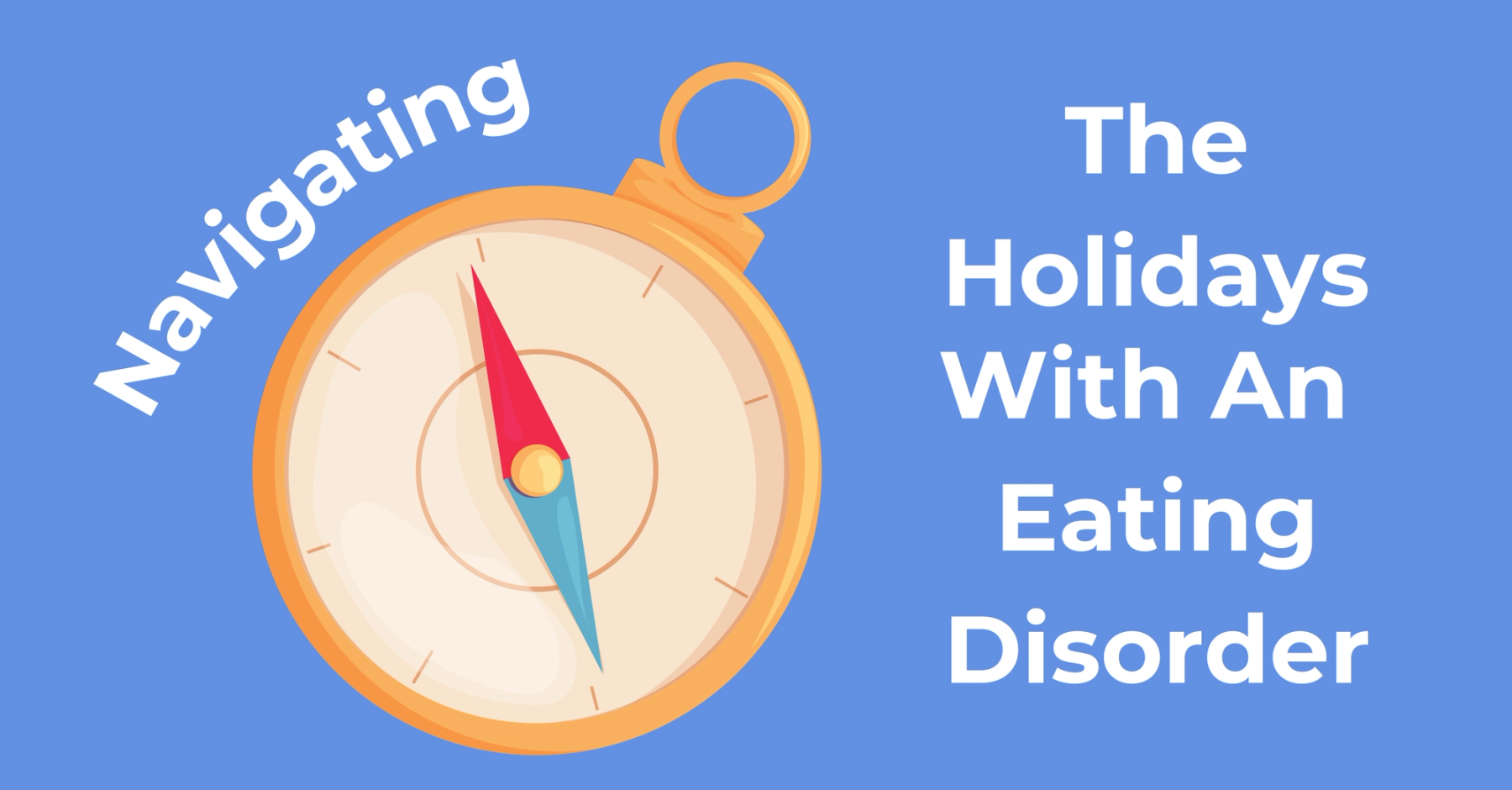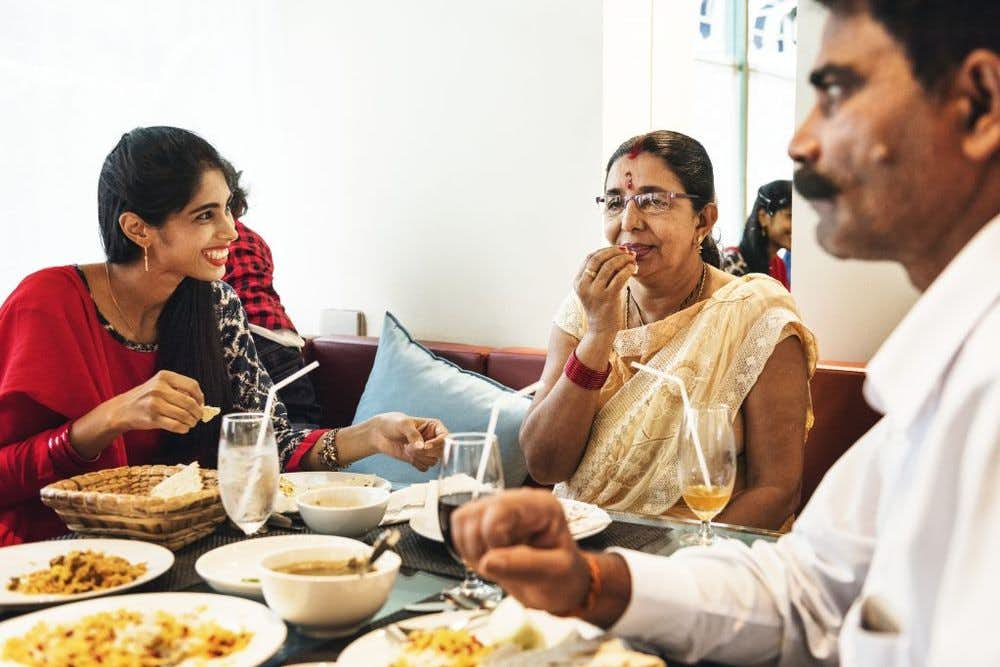December 24th, 2021

The holiday season is commonly associated with celebrating traditions and spending time with family. While many focus on travel, parties, and shopping, this is also an important time of year to be keenly aware of our mental health. We can start by taking time to check in with ourselves and using healthy coping skills to manage stress. This is especially important for those suffering from an eating disorder because there is often increased anxiety related to food, body weight, and body image around the holidays.
Common worries and challenges during this time include overeating and feeling guilty after, sticking to a meal plan, hearing comments about food choices or how much they’re eating, or their appearance. For loved ones who want to offer support during this time, it is important to understand the individual experience and effective ways to offer support to make the most of the holiday and enjoy it together.

This timeline can be flexible. For example, if you plan to only stay for two hours but find yourself having a great time, it’s okay to stay longer and enjoy yourself. Know your limits. If you find yourself having difficulty coping, know that it’s okay to leave.
Finally, set boundaries with people you may see that tend to be invalidating. Limit exposure and spend more time with those who make you feel supported.
Many of your loved ones may not be aware of your meal plan, so explaining it to someone you feel comfortable with can be helpful.
If you are unsure the event you’re attending will have food that meets your meal plan, offer to bring a dish that you will enjoy and will help you stay on track. When in doubt, stick to your meal plan! If you feel comfortable having more of your favorite holiday dish or challenging yourself with new food or dessert, that’s great!
But if you find yourself feeling overwhelmed and uncomfortable, set up your plate based on your meal plan and remind yourself this is the nutrition your body needs.
Choose someone you feel comfortable talking to about your eating disorder. You can let them know about concerns you have related to the holiday, your plan to deal with stress that day, and how they can help.
Knowing you have someone you feel comfortable and safe discussing these things with, who is available for support, will help you feel more comfortable and allow you to enjoy the holiday.
If you find yourself at an event without a support person, you can always plan to text or call someone if you need support.

Practice Mindfulness—Be Present!
Remind yourself that you are there to celebrate the holiday, spend time with people you care about, and enjoy yourself. Try your best to be present. If you find it difficult at times, it’s okay to walk into another room or step outside. Take a few minutes alone to practice deep breathing or a grounding exercise. Take part in games and catch up with friends and family members.
If you do not feel comfortable talking too much about yourself, ask them how their year has been or talk about current events.
Remember this is a difficult time, so be kind to yourself. Most of us find it easier to be kind and supportive to others and are hard on ourselves. Ask yourself how you would treat someone you care about that is in the same position you are. Then say those things to yourself, and give yourself a break! Remind yourself that you are trying – it’s okay to struggle and it’s okay to need support.
Recognize negative thoughts you have about food and weight, and ones related to the holiday. Practice reframing those thoughts. For example, reframing a typical “all or nothing” negative thought/cognitive distortion like “If I eat a dessert today, I will gain a lot of weight.” to “It’s okay to have dessert, especially on the holiday. This is something I used to enjoy this time of year, and it’s not realistic to think one dessert will impact my weight.”
When you find yourself having a negative thought, ask yourself questions such as, “Is there evidence for this?” “Would my therapist or dietician agree?” Then come up with a more realistic or positive statement.
Finally, others are often unaware of the impact comments about food and appearance can have. Try to avoid this focus, and remember you’re there to enjoy the holiday and those around you.

Having read this post, you now have a deeper understanding of how someone may be experiencing the holidays and strategies they may use to help navigate. If you have a loved one who is struggling with an eating disorder or has, you may be asking, “How can I help?”
Written By: Dr. Nicole Ortiz, PhD
At Clarity Clinic, we have highly trained staff who specialize in therapy and psychiatry services. To learn more about how we can support your mental health, call Clarity Clinic at (312) 815-9660 or schedule an appointment today.

Our Services
Virtual/Online CarePHP and IOPAdult PsychiatryChild & Adolescent PsychiatryAdult TherapyChild & Adolescent TherapyCouples CounselingFamily TherapyGroup TherapyPsychological TestingTranscranial Magnetic Stimulation (TMS)Resources
Refer a PatientCareersClinical Training OpportunitiesOur ProvidersFree Mental Health TestsCommonly Prescribed MedicationsLocationsBlogIn The NewsClarity Through CharityClarity for AllQuick Links
Patient PortalFAQsAccepted InsurancesContact us